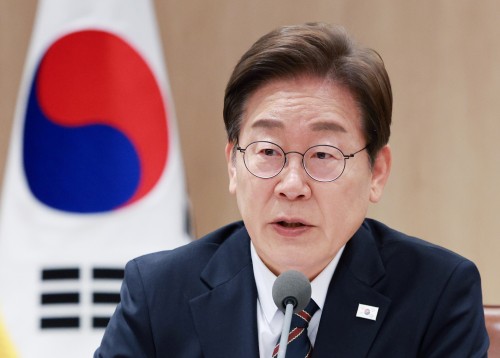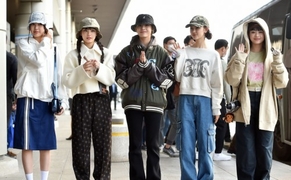 |
| President Lee Jae-myung / Photo: Presidential Press Corps |
President Lee Jae-myung will embark on his first major diplomatic mission as he departs for Canada on June 16 to attend the Group of Seven (G7) summit. The trip marks the official launch of his administration’s foreign and trade policy, just two weeks after taking office. It also presents an opportunity to resume summit-level diplomacy with key nations, including the United States and Japan.
According to National Security Adviser Wi Sung-lac, the three-day visit will serve as “the starting point for restoring high-level diplomacy that has been stalled for six months.” In a briefing on June 15, he emphasized the symbolic weight of this debut, saying it will signal to the world that “democratic Korea is back” after a period of political upheaval under martial law.
A potential summit with U.S. President Donald Trump is drawing particular attention. If held, key issues would include the South Korea–U.S. alliance and economic cooperation. Unlike previous first summits, which centered on North Korea’s nuclear program, this meeting is expected to address contentious matters such as tariffs and defense cost-sharing.
A senior official from the presidential office said, “This could become a moment to inject momentum into working-level negotiations on tariffs and other sensitive issues.” The Lee administration is also bracing for any unexpected remarks or moves by Trump regarding topics like U.S. troop presence or anti-China strategies, which may not be formally on the agenda.
President Lee has been rigorously preparing for the summit, canceling public appearances over the weekend to focus on finalizing the agenda, key messages, and speeches. He is expected to uphold a “pragmatic diplomacy” approach that prioritizes national interest, while seeking a delicate balance between the U.S. and China.
Lee may also meet bilaterally with Japanese Prime Minister Shigeru Ishiba, and a possible trilateral summit with the U.S. and Japan is being explored. His Japan policy will face a critical test in the context of intensifying U.S.-China rivalry.
This diplomatic debut is poised to significantly affect the momentum behind the new administration’s reform agenda. Historically, South Korean presidents have leveraged foreign policy achievements to consolidate domestic political authority. The scale of tangible outcomes in security, economy, and diplomacy that Lee returns with from the G7 could shift the political balance in his favor.
However, failure to deliver—whether due to diplomatic missteps or friction with Trump or other leaders—could place the administration on the defensive early in its tenure.
After the G7, President Lee is also expected to attend the NATO summit in The Hague on June 24, marking a swift return to multilateral diplomacy to fill the six-month vacuum in Korea’s global engagement.
Most Read
-
1
-
2
-
3
-
4
-
5
-
6
-
7





















